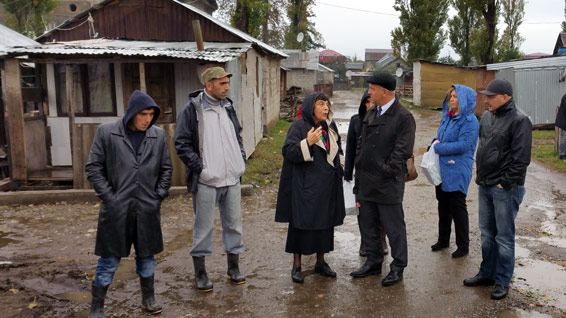“Judicial reforms have yielded some positive results in Georgia, in particular as concerns the reduced influence of the prosecutorial authorities, the increased transparency in the work of the High Council of Justice and an improved juvenile justice system. However, long-standing structural problems still require serious attention, particularly with a view to upholding the independence and effective functioning of the judiciary” said today Nils Muižnieks, Council of Europe Commissioner for Human Rights, in his observations addressed to the Prime Minister of Georgia following a visit to the country.
Shielding judges from internal and external interference is a priority. Necessary changes should be enacted with a view to ensuring that the selection, appointment and transfer of judges are transparent, merit-based and carried out in accordance with clear criteria. Concerns pertaining to the allocation of cases - notably in high profile trials - to judges perceived to be loyal to the executive raise doubts as to judicial independence and call for the introduction of a procedure for the random allocation of cases among judges. The Commissioner was informed of specific cases of alleged pressure and interference with the work of judges, as well as allegations of threats and intimidation targeting judges of the Constitutional Court in relation to decisions they have taken. Another problem the authorities need to address urgently is the disciplinary system against judges, which does not seem to function properly.
The Commissioner is concerned about allegations of politically-motivated measures targeting members of the opposition, especially with regard to the use of pre-trial detention measures against them. Moreover, despite some improvements in the selection, appointment and dismissal procedures of the Chief Prosecutor, issues remain related to the work of this key institution in the field of criminal justice. “Resolute efforts are called for to increase the impartiality and accountability of the work of prosecutors and law enforcement officials.”
Accountability must be established for several cases of alleged abuse, including ill-treatment, in some penitentiary institutions and police stations, such as those which reportedly occurred at the Kobuleti police station. “The Georgian authorities should establish the facts and punish those responsible. They should consider setting up an independent investigation mechanism which would look into alleged violations by law enforcement agents and prison officials, on the basis of the proposals submitted by the Public Defender and other actors, such as the Council of Europe.”
The Commissioner urges the Georgian authorities to make more effective use of the existing anti-discrimination legislation and mechanisms. They should speed up the adoption of the legislative amendments currently pending before the Parliament, as they would provide the Public Defender with broader powers in combating discrimination, including in the private sector.
In addition, the Commissioner urges the Georgian authorities to improve their responses to hate crimes and hate speech, including on the basis of sexual orientation and gender identity, and to ease tensions between majority and minority religious groups, particularly concerning issues related to religious properties and places of worship. Another remaining issue pertains to the respect of the principle of religious neutrality in education. Recalling that the marginalisation and alienation of minority groups is a direct threat to social cohesion, the Commissioner encourages the Georgian authorities to engage in a genuine dialogue with all religious denominations and to tackle identified issues following a human rights-based approach
The observations are based on the Commissioner’s latest visit to Georgia from 9 to 13 November which assessed the implementation of the recommendations set out in his 2014 report.



